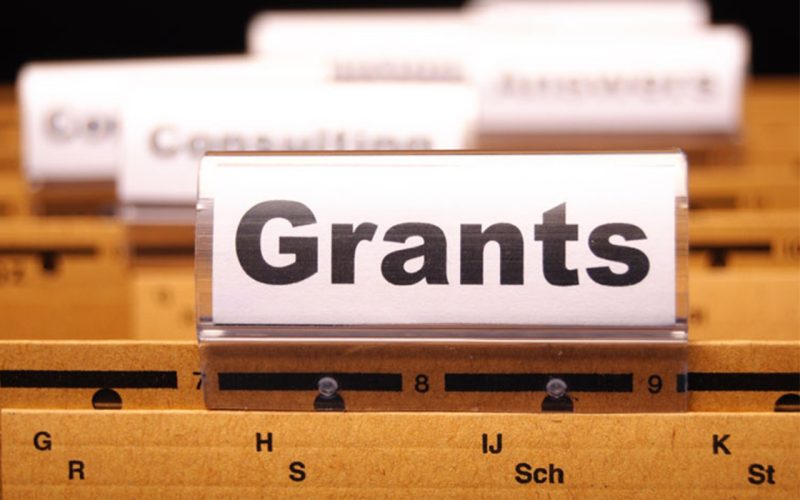The Netherlands Organization for Scientific Research (NWO) today awarded 174 promising young scientists a grant of up to €320,000 through Veni funding (Veni Round 2023). Among them are five researchers from UMC Utrecht. With this grant, the laureates can further develop their own research ideas for the next three years.
The Veni is an annually awarded, personal scientific grant, is part of the NWO Talent Program and is aimed at researchers who have recently obtained their PhDs. They will conduct research within the full breadth of science. The projects receiving funding therefore focus on a wide variety of topics: from the use of algorithms and AI in criminal justice to the role of gut bacteria in our mental health, and from correcting quantum errors to the distribution of colonial profits in the Netherlands in the 19th century.
The recipients of this prestigious grant and their research are:
| Recepients | Research |
|---|---|
| Julia Berezutskaya, PhD (Department of Neurology and Neurosurgery) | Muscle (re)Animation via Neural Interfaces and Facial Electrical Stimulation (MANIFESt) - Communication is an essential part of our lives. People with severe paralysis, however, cannot voluntarily move or speak, and therefore cannot communicate with family and loved ones. A neural interface technology could help them by tapping into their brain activity and retrieving intended communication signals bypassing the paralysis. In this project, I will test the scientific feasibility of a novel technology based on 1) detection of facial expressions from brain activity, and 2) subsequent electrical stimulation of the face to induce detected facial expressions. Such technology could restore the ability of people with paralysis to communicate. |
| Danielle Krijgsman, PhD (Center for Translational Immunology) | VISION: oVercoming Immunotherapy reSistance In cOlorectal caNcer - Metastatic colorectal carcinoma (CRC) ranks as the third leading cause of cancer-related mortality globally. Particularly, myeloid immune cells impede the efficacy of immunotherapy essential for eradicating cancer cells. I aim to address this challenge by characterizing these myeloid cell subsets through imaging mass cytometry of CRC tumors and identifying therapeutic targets on these cells. Subsequently, I intend to assess whether the blockade of these targets using antibodies can neutralize the suppressive function of myeloid cells. This approach holds the potential to render immunotherapy effective in treating this disease, paving the way for the future cure of more CRC patients. |
| Maria Laura Tognoli, PhD (Central Diagnostic Laboratory) | Identifying cancer extracellular vesicle subpopulations responsible for tumor microenvironment remodeling - Cancer cells use small vesicles to send signals to the surrounding normal tissue and render it permissive to tumor progression. These vesicles, found in the tumor itself and in blood, are potential therapeutic targets and tools for disease monitoring. However, vesicles are not all the same, they come in different types and have different functions, which are still unknown. The researchers hypothesize that there are unique vesicle types that contribute to changes in the normal tissue which favor tumor progression and will use a new approach to demonstrate it. The newly-found vesicles will hold potential as biomarkers and therapeutic targets. |
| Renske ten Ham, PhD (Department of Epidemiology & Health Economics) | Certainty about uncertainty in drug reimbursement: Bayesian methods in cost-effectiveness analyses - Gene therapies (GTs) accelerated development of potential cures for rare and previously untreatable diseases. However, their high prices cause mayor concerns amongst payers. Cost-effectiveness analyses (CEAs) are accepted to quantify costs and benefits for reimbursement decisions. The data underlying CEAs of GTs is often immature, due to targeting of new, small and “neglected” diseases. By incorporating Bayesian methods into CEAs, I aim to decrease uncertainty to more accurately inform reimbursement decisions. For this, I use spinal muscular atrophy and hemophilia B as case studies. The proposed methods have potential for a wider application in health economics. |
| Linda Heskamp, PhD (Department of Radiology) | MRI motor mapping: The detection of early disease signs in ALS - Gene therapy is a promising treatment for individuals with increased genetic risk of ALS. Clinical trials show that gene therapy slows down disease progression, but it cannot restore lost muscle function. Consequently, administering gene therapy at the earliest feasible stage is crucial. Therefore, neurologists must possess the capability to detect the earliest disease signs of ALS in skeletal muscle. In this project, researchers develop a novel imaging approach aiming to detect early disease signs in skeletal muscles of people predisposed to developing ALS. |
The 174 grants from the 2023 Veni round are divided between 27 grants at domain Health Research and Development (ZonMw), 25 at Applied and Technical Sciences (TTW), 53 at Exact and Natural Sciences (ENW) and 69 at Social and Humanities (SGW). Among the 1308 preliminary applications were 669 (51 percent) men, 573 (44 percent) women. Of 66 applicants, the gender was unknown. Of the 174 awards, 86 went to male and 85 to female applicants; honor rates of 13 and 15 percent, respectively.
The NWO Talent Programme gives researchers the freedom to pursue their own research based on creativity and passion. The program encourages innovation and curiosity. Curiosity-driven research contributes to and prepares us for tomorrow’s society. That is why NWO focuses on a diversity in terms of researchers, domains and backgrounds. Together with the Vidi and Vici grants, Veni is part of the Talent Program. NWO selects researchers based on the academic quality and innovative character of the research proposal, the scientific and/or societal impact of the proposed project, and the quality of the researcher.
